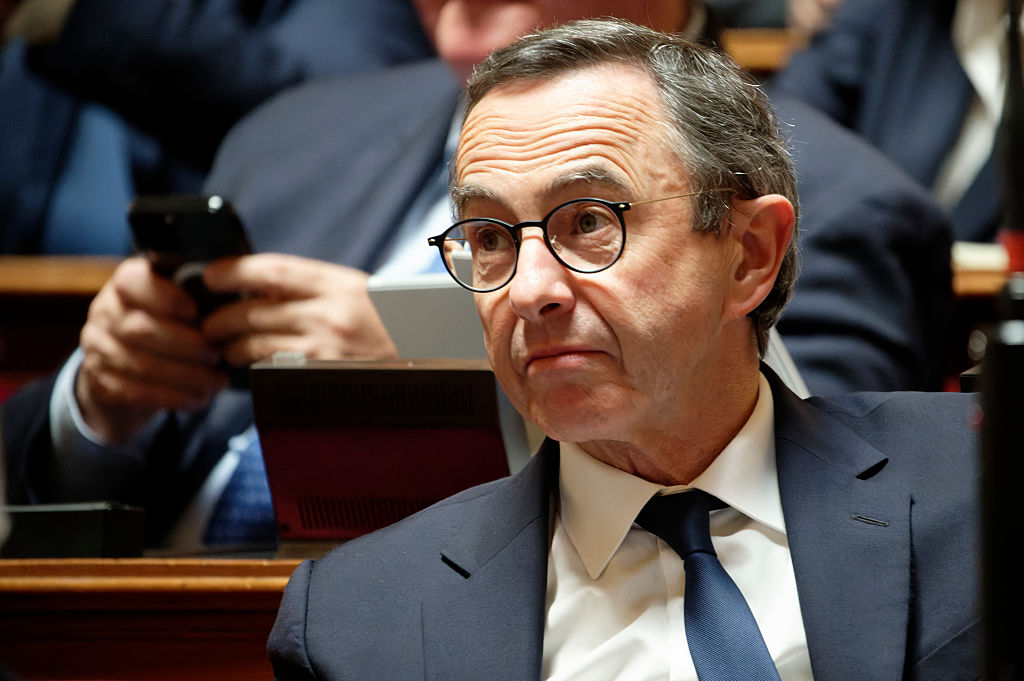Bruno Retailleau, France’s former interior minister, has with his Senate group just published the toughest report on Islamism in a generation. They warn that Islamist networks have taken hold of entire swathes of French public life – from schools and sports clubs to student housing, neighbourhoods and councils. In the report, 29 Republican senators set out what they describe as a coordinated effort by Islamist networks to impose parallel norms and bypass republican authority. They argue that only urgent, hard-hitting measures can halt the advance and are calling for banning the hijab for girls under 16, prohibiting fasting for minors, enforcing strict neutrality in sport and local government, cutting foreign funding to mosques and associations, and giving the state far broader powers to track and dismantle Islamist networks wherever they operate. The senators are framing their project as a broad ‘rearmament’ – intellectual, juridical, administrative and political – against what they call an ‘Islamist offensive’.
They warn that Islamist networks have taken hold of entire swathes of French public life – from schools and sports clubs to student housing, neighbourhoods and councils
For eight years Emmanuel Macron’s governments have circled this reality with carefully calibrated language, treating Islamism as a sociological challenge rather than an ideological one. Ministers spoke of ‘radicalisation’, ‘communitarian drift’, and ‘pockets of tension’. The Senate report ends that era of polite circumlocution. It states plainly what the Élysée has avoided saying, namely that France is confronted not by cultural friction, but by a strategic adversary.
This bluntness hits a government that is structurally incapable of matching it. Prime Minister Sébastien Lecornu, raised inside Macron’s inner circle, has absorbed every instinct of Macronism. He’s obsessed with balanced phrasing. He’s worried about appearing divisive and believes that clarity is a political liability. His government will resist much of the LR plan, partly from ideology, partly from reflex, but mostly because it lacks the confidence to defend the measures that have been proposed.
The Senate report has been published just days after Bruno Retailleau’s return to the Upper House. Retailleau spent his time in government speaking in the softened language required by Macron’s style of politics. Now back in parliament, that constraint has disappeared. His imprint is all over the document. Retailleau is doing what this latest Macron government cannot: he’s setting the terms of the national conversation. In contrast to a government that avoids naming the threat, Les Républicains have decided to confront it head-on.
A previous Senate inquiry in 2020 had already warned that Islamist groups were gaining leverage in schools, sports federations and neighbourhood associations through steady, organised pressure. This latest report echoes those findings but shows how much further the process has advanced. It describes pressures within schools, sports clubs reshaped around religious demands, student organisations where activists close to Brotherhood-influenced networks have taken root, and local associations effectively operating as parallel authorities. What had seemed, in the earlier report, like a gathering threat now appears to be a pattern of entrenched influence. They argue that Macron’s signature 2021 law against separatism has failed to stem the advance, pointing to what they describe as ‘local authority Islamism’. Religious activists shape daily life through local associations, youth clubs and subsidised housing bodies.
The report lays out 17 core recommendations which they’re calling for the government to adopt. The hijab ban for minors is framed as child protection. So is the prohibition on fasting for children under 16. In sport, the senators call for strict religious neutrality. In education, they praise the clarity brought by the Attal circular – which banned the abaya in schools – and demand its rigorous enforcement. They highlight attempts by Islamist activists to normalise religious demands in student dining and university life. Regarding migration, they want visas to be issued by the Interior Ministry and tied to cooperation from countries of origin. They’re pushing for tight controls on foreign funding for religious organisations, tougher oversight of forced marriages and the power to dissolve associations that act as ideological fronts. The report is framed as a legislative programme, not a manifesto.
The report is an indictment of France’s integration model and the political cowardice that has been behind it. For 20 years, leaders insisted the country was ‘strong enough’ to absorb anything. Politicians have recoiled from enforcing the principles they claimed to defend. Across the country, parallel norms have cemented themselves. Islamist actors exploited gaps in the law, the bureaucracy and the state’s own uncertainty about its identity. The authority of the state has been eroded because those responsible for asserting that authority simply have not stood up and done their job.
The report’s verdict on Macronism is stark. Macron treated Islamism as a matter of framing, psychology or optics, rather than a coordinated ideological project that should have been confronted head on. Standing up to Islamists became a performance, not a policy that was ever really implemented. Meanwhile Islamist organisations have been organising, recruiting, funding and expanding. The Senate report describes a Republic that talked of principles but where in practice the state has steadily been ceding ground.
Under Macron the Élysée has treated Islamism as a communications problem – a question of tone. Yet whole swathes of French life have fallen under the influence of an ideology that recognises no authority but its own. The senators have identified the areas in which the state has lost control and handed the Republic the tools to reclaim the lost ground. Everything now depends on whether Sébastien Lecornu’s government has the courage to implement them, or whether Islamism will continue to advance while the state looks away.








Comments